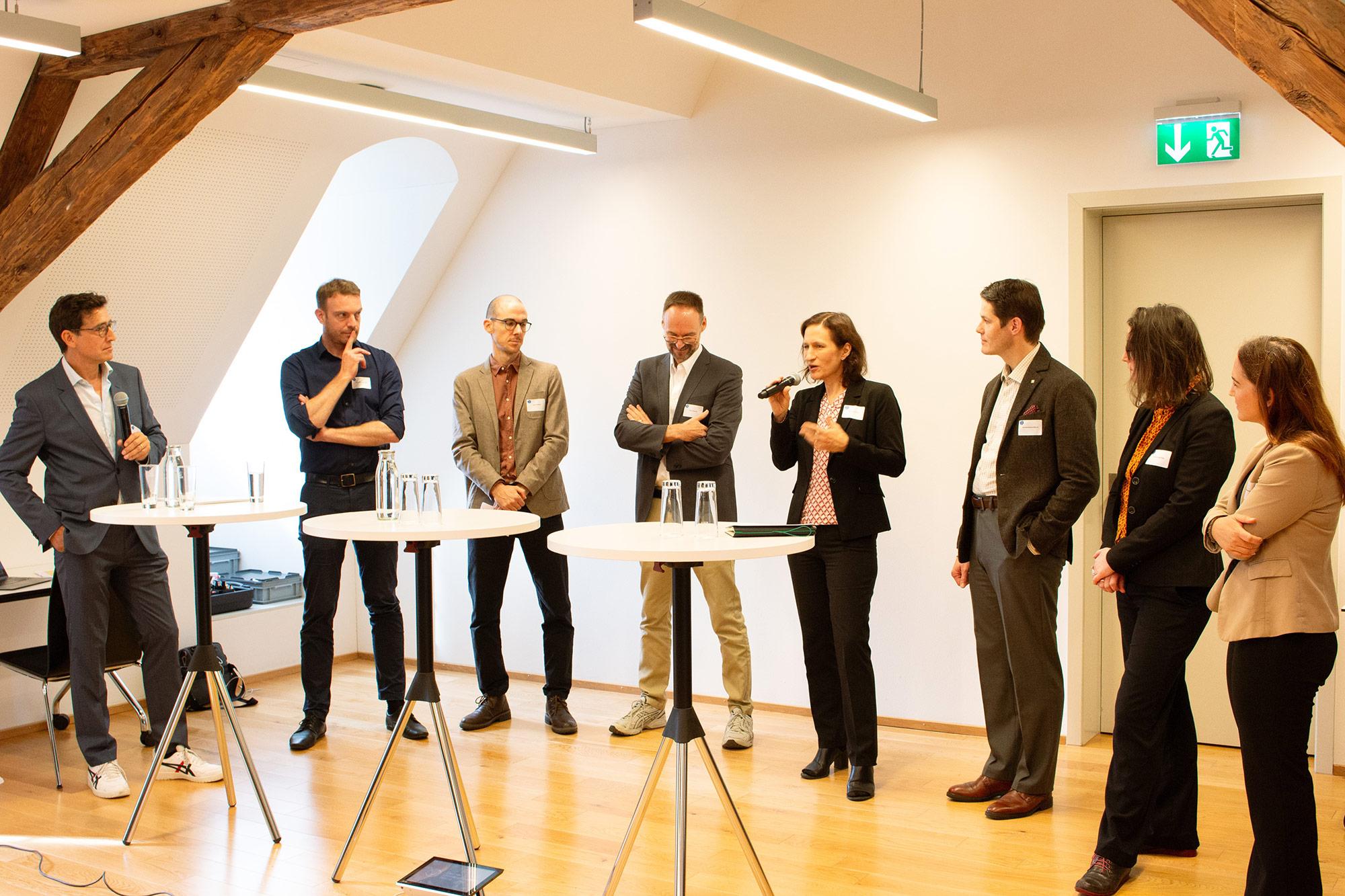Digital transformation in education requires a great deal of understanding and cooperation

The first dialogue event of the National Research Programme NRP 77 held on 24 September in Bern was dedicated to the question of how digitalisation is being used in the Swiss education system.
The Swiss National Science Foundation organised the conference in partnership with Educa, the national specialist agency for digital education, on behalf of the federal government and cantons.
Around 80 professionals came together to discuss the latest research findings. The event centred around research projects focused on several different levels of education:
Dorothee Brovelli from the Lucerne University of Teacher Education explored how digital media are being used by STEM subject teachers at lower secondary level. She observed that teachers are still finding it difficult to use their pedagogical knowledge with digital teaching media and to evaluate these media properly. In consequence, the quality of the media used, for instance explainer videos, varies significantly – from both a teaching methodology and a media design perspective.
Dominik Petko from the University of Zurich’s Institute of Education conducted a comprehensive survey on the use of digital media at upper secondary level in his NRP 77 project, questioning school directors, teachers, and students. This revealed that although all respondents attach a high level of importance to digital media, significant ambiguity and uncertainty persist, and its full potential for teaching and learning remains underutilised. Thus, digital media are being used first and foremost in passive ways, for example by watching videos. Like Brovelli, Petko also called for a focus on the quality of media use rather than quantity.
Katja Rost and Philippe Saner from the University of Zurich’s Department of Sociology studied how Swiss higher education institutions are approaching digitalisation and using it strategically for their future development. Although digitalisation is something that higher education institutions have been working on for decades already, it is only in the last 10 years that a strong upward trend has been observed – both in the institutions’ annual reports and in their publications and courses. The majority of Swiss higher education institutions are thus positioning themselves strategically in the field of digitalisation, but they are choosing different approaches to doing so.
Anne Parpan from the FHNW School of Social Work referred in her contribution to the importance of ensuring that consideration is always given to the digital participation of people with disabilities in this process. In her NRP 77 project, she was able to demonstrate that although the topic of inclusion is viewed as very important by vocational training organisations, less than a third of them are taking accessibility into consideration in digitalisation concepts.
The exchanges with the attending representatives from practice made it clear that we are in the middle of a transformation and that a great deal of understanding and cooperation are needed to actively structure this transformation and exploit the potential of digitalisation productively. It was mentioned a number of times that a strong dialogue between research and practice is also needed for this, not least to allow people to move agilely in this rapidly changing field.
